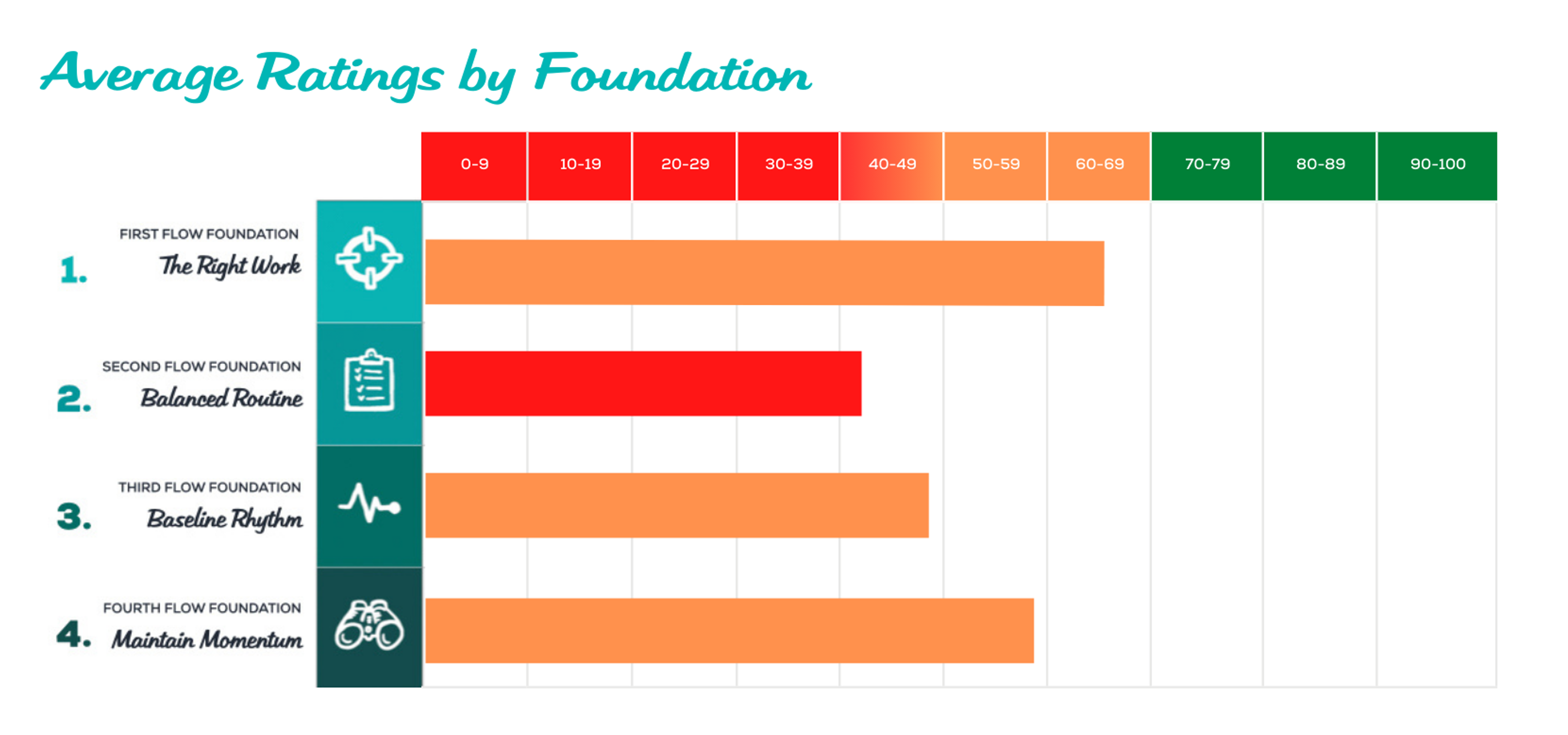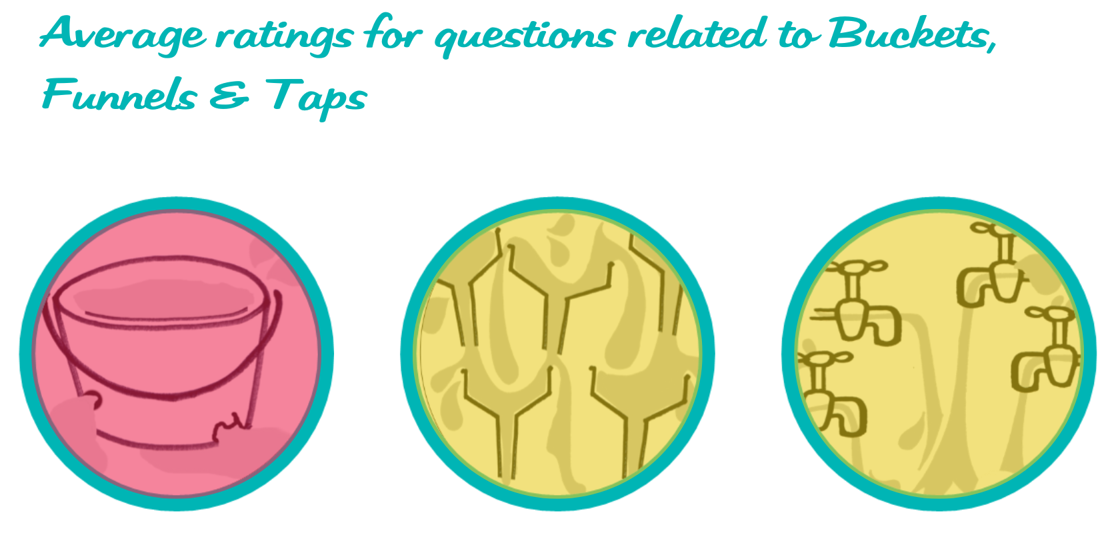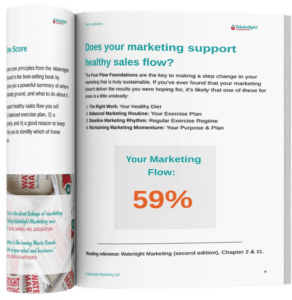Reading Time: 5 Minutes
When we were delving into the data behind our research paper (published last autumn), one of the most surprising results was this: having a marketing plan that supports the sales process is the lowest scoring area in all business sizes and all roles. Even marketers themselves rated it poorly. This blog explores why and what you can do about it. ~ Rachael Wheatley | MD, Watertight Business Thinking
If you were to ask marketers – and indeed, their leaders – whether they were doing a good job, we are sure they would almost certainly say yes. And it’s true that there are many marketers doing a fabulous job and making an impact.
So why is marketing planning universally rated so poorly?
We believe it’s in large part because our questions unpack this area of marketing with deeper probing and a broader definition of marketing. In doing so, it leads people to critique their own performance – and that of marketing planning – more accurately.
What does good look like?
Our second Flow Foundation is the focus here and where marketing planning sits. It’s all about having a balanced marketing routine. It’s like having an exercise plan that is put together for you by a personal trainer. Having listened to your objectives and assessed your strengths and weaknesses, he puts together a plan that helps you deal with a number of areas you want to work on, including building your stamina, strength and muscle. We define a balanced marketing routine as being one that has an effective tool or technique mapped to every step of a decision journey. Like the plan from your personal trainer, it builds all-round marketing fitness.
That is, not just marketing that generates awareness and interest (what many people think of as marketing). What you’re looking to do is to also put in place marketing that supports your sales team in their conversations with warm prospects and marketing that encourages loyalty from your existing customers.
So, arising from this definition, the questions we ask in our fitness test around Balanced Routine cover how well understood the customer’s journey is and how effective the marketing is across their decision. Also, crucially, it asks whether there is an effective tool mapped to every step of the journey, which of course links directly back to our definition.
Answer our marketing fitness test to benchmark your own company: find the test here
Why marketing planning is rated so poorly
Let’s put the scores for this Foundation in context. Across 537 companies whose data we were looking at, three out of the four Foundations were rated amber. The only one rated red, on average, was this second Foundation – Balanced Routine.

It was the lowest rated area by all respondents, in all roles, and in all business sizes, though typically it’s the MD that shows the greatest frustration – people in this role rated Balanced Routine at 39%, the lowest score of anyone. (By way of a side note, if you haven’t asked your MD what they think of the effectiveness of your marketing and why, do have this conversation! You could ask them to complete our test and compare their results with yours to facilitate that conversation. We guarantee the differences and similarities will be illuminating.)
You’ll notice, too, that the other low scoring Foundation is baseline rhythm; both this and Balanced Routine represent the operational side of marketing. Despite the thousands of gurus, books and courses relating to marketing operations what seems to be true is that businesses struggle to make good on the plentiful advice. They don’t apply it in practice. This could be because they don’t want to spend money on marketing, or don’t know how to spend it, or are wasting the money they are spending, which isn’t having the effect they would like it to. All of these reasons drive their answers to our questions.
One key reason why the planning area in particular is rated so low is because of the very questions we ask and the broader definition of marketing we use. Marketing is commonly associated with lead generation, so people not in marketing will often see success in those specific areas as driving effective marketing. Indeed, our data showed exactly this: the highest scoring questions were at the start of the customer journey, at the awareness and interest stage where you’d see lead generation activities. (Although it has to be said, even these scores were on average, well, average, rather than good).
We found that the ratings got worse as the customer journey progressed. So, the next lowest was the marketing that supports sales conversations (Funnels) and the lowest scoring questions were around customer on-boarding and loyalty – the Bucket area in the Watertight methodology.

The other main reason why planning is rated poorly is because of a key question which scored the lowest of all (3.3 out of 10): “How well do you have an effective marketing tool mapped to every step in each mapped customer journey.” Having this in place is pivotal to having an effective marketing plan. That it’s rated so low points to there being plenty of holes in the marketing plan!
The three actions to take
To make sure your Balanced Routine scores at least amber, if not green, here are three things you can do:
- Take time to map out your customer’s journey, the steps they take, the questions they’re asking and what they’re thinking and feeling. Do this from the time they’re first made aware of you to the time they would consider themselves a loyal customer.
- Make sure your marketing plan builds what we call a path to purchase where one step leads to the next. Your marketing activities invite people forward.
- Do a marketing gap analysis to find out what you have in place, how and where that supports the customer’s journey and what’s missing. And then plug those Leaks!
Taking these actions will ensure your marketing planning properly supports the whole of the customer’s journey resulting in that Balanced Routine you’re looking to achieve.
Download the research paper here

Subscribe to the CMO Toolkit
Would you like to get your hands on the tools, frameworks, templates, workshop packs, slides, and analysis tools we use with our clients? It’s all waiting for you.

Rachael Wheatley
Managing Director, Watertight Thinking
Rachael brings over 30 years’ of marketing experience, with a particular focus on building and developing effective marketing teams that are able to act as a strategic driving force across an organisation. She has worked with Watertight since 2014 as a Master Practitioner and joined the business as MD in 2022.


